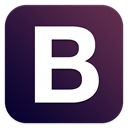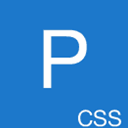Discover the Best 320 and Up Alternatives for Responsive Web Design
As a foundational tool for creating 'tiny screen first' responsive designs, 320 and Up has served many developers well. However, with the ever-evolving landscape of web development, many are seeking robust and versatile 320 and Up alternative options. Whether you're looking for more features, a different development approach, or simply a more active community, there are numerous powerful frameworks available to help you build stunning, responsive websites.
Top 320 and Up Alternatives
When it comes to responsive web design, the right framework can make all the difference. We've compiled a list of top alternatives to 320 and Up, each offering unique strengths to empower your next project.

Bootstrap
Bootstrap is a leading open-source collection of tools for creating browser sites and applications, making it an excellent 320 and Up alternative. It's a Free, Open Source, Self-Hosted, HTML5 Boilerplate, and JavaScript-based platform. Key features include responsive design, active development, clean design, extensive documentation, and premade templates, all contributing to its robust responsive layout capabilities.

Foundation
Foundation stands out as an easy-to-use, powerful, and flexible framework for building rapid prototypes and production code on any kind of device. As a Free, Open Source, Web platform, it's a strong CSS framework and a great 320 and Up alternative for those prioritizing flexibility and speed.

Materialize
Materialize is a modern responsive CSS framework based on Material Design by Google, offering a distinct aesthetic and functionality compared to 320 and Up. This Free, Open Source, Web platform provides features like Material Design implementation, CSS framework capabilities, mobile framework support, responsive design, and robust web development tools.

Purecss
Purecss offers a set of small, responsive CSS modules that can be used in every web project, making it a lightweight 320 and Up alternative. It is a Free, Open Source, Web platform designed for simplicity and efficiency in responsive design.

Skeleton
Skeleton is a small collection of CSS & JS files designed to help rapidly develop sites that look beautiful at any size. As a Free, Open Source, Web platform, it's a highly effective CSS framework for responsive design, providing a streamlined 320 and Up alternative for fast prototyping.

Element UI
Element UI is a Vue 2.0 based component library for developers, designers, and product managers. It's a Free, Open Source, Web, Self-Hosted platform utilizing CSS, JavaScript, and Vue.js. While different in scope from 320 and Up, its robust CSS framework makes it a compelling alternative for Vue.js projects needing strong UI components.

Spectre.css
Spectre.css is a lightweight, responsive, and modern CSS framework built for faster and extensible development. As a Free, Open Source, Web, Self-Hosted platform, its focus on being a CSS framework for responsive design and web development makes it a strong contender as a 320 and Up alternative.

Material Bread
Material Bread is a Material component library for React and React Native, covering both mobile and web development. This Free, Open Source, Self-Hosted solution provides features like React and React Native integration, responsive design, and extensive web development tools, making it a powerful 320 and Up alternative for React-based projects.

Tailwind CSS
Tailwind CSS is unique compared to frameworks like Bootstrap or Foundation; it's not a UI kit and lacks a default theme, offering utility-first CSS. As a Free, Open Source, Self-Hosted CSS platform, its powerful CSS framework and web development capabilities make it an incredibly flexible and customizable 320 and Up alternative for those who prefer to build unique designs from the ground up.

Material Design Lite
Material Design Lite is Google's front-end web framework for building sites to the Material Design specification. This Free, Open Source, Web, GitHub-hosted platform offers a robust CSS framework and strong responsive design features, making it an excellent 320 and Up alternative for developers seeking Google's design principles.
Choosing the right responsive framework depends entirely on your project's specific needs, your team's familiarity, and your desired level of customization. Explore these 320 and Up alternatives to find the perfect fit for your next web development endeavor.